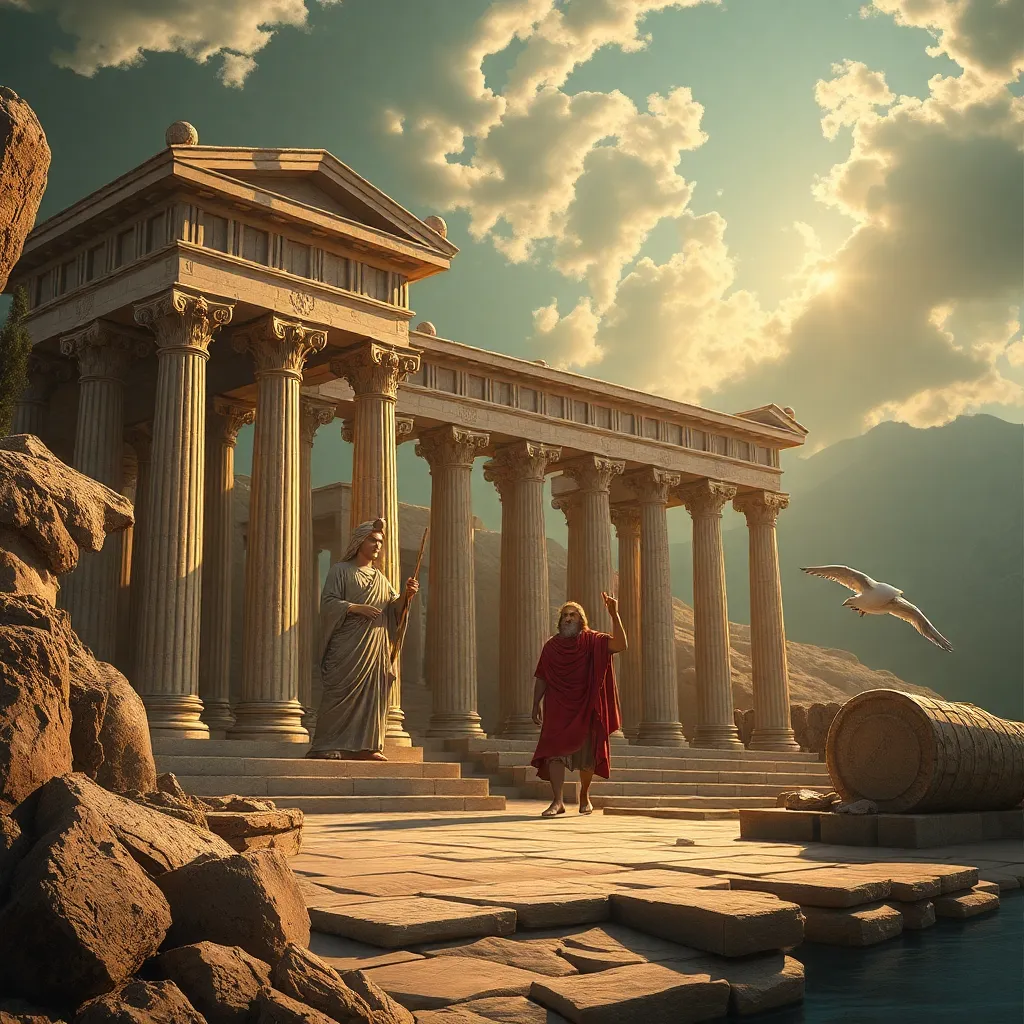The Odyssey and the Nature of Power: Authority and Control
I. Introduction
“The Odyssey,” attributed to the ancient Greek poet Homer, is one of the most significant works in Western literature. This epic poem narrates the arduous journey of Odysseus as he attempts to return home to Ithaca after the Trojan War. Throughout his journey, themes of power, authority, and control are intricately woven into the narrative, highlighting the complexities of human relationships and societal structures.
Understanding the dynamics of power within “The Odyssey” is crucial, as it reveals how authority is established, challenged, and maintained in both mortal and divine realms. This article aims to explore these themes, focusing on the various expressions of authority and control as depicted in the epic.
II. The Concept of Authority in Ancient Greek Society
Authority in ancient Greece was multifaceted, encompassing political, social, and divine dimensions. In the context of “The Odyssey,” authority can be defined as the legitimate power that individuals or groups wield over others, often justified by tradition, lineage, or divine sanction.
- The role of kingship and nobility: Kings, such as Odysseus, were seen as the embodiment of authority, expected to protect their subjects and uphold justice. Their power was often hereditary, reinforcing the importance of noble bloodlines.
- The influence of the gods: The gods played a pivotal role in legitimizing authority. Mortals were often seen as extensions of divine will, and their actions were believed to be influenced or controlled by the deities.
III. Odysseus as a Figure of Power
Odysseus is a complex character who embodies various traits of leadership and power. His cunning intellect, bravery, and resilience make him a quintessential hero in Greek mythology.
- Characteristics of Odysseus as a leader: Odysseus is not merely a warrior; he is a strategist. His ability to outthink his opponents, as seen in the encounter with the Cyclops Polyphemus, illustrates his preference for cunning over brute strength.
- His journey as a quest for personal and political power: Odysseus’s long voyage home symbolizes not only a physical journey but also a struggle for reclaiming his authority over Ithaca and his family.
- The balance between cunning and brute strength: Odysseus’s power lies in his ability to balance cleverness and physical prowess, making him a well-rounded leader.
IV. The Role of the Gods in Exercising Control
The gods in “The Odyssey” exert significant control over the mortal realm, often intervening in human affairs to assert their power.
- Divine intervention: Characters such as Athena provide guidance and support to Odysseus, while others like Poseidon seek to hinder him. This divine meddling complicates the notion of free will.
- Examples of gods asserting control: The frequent interventions by gods illustrate how mortals are often at the mercy of divine whims, reflecting the precarious nature of human authority.
- The relationship between fate, free will, and power: Odysseus’s journey raises questions about destiny and autonomy, suggesting that while humans can strive for power, ultimate control often lies with the gods.
V. Female Authority: Penelope and Circe
Women in “The Odyssey” also exhibit powerful forms of authority, challenging traditional gender roles in ancient Greek society.
- Penelope’s role: Penelope, Odysseus’s faithful wife, represents a different kind of power. In Odysseus’s absence, she skillfully maintains control over the household and fends off the suitors vying for her hand, showcasing her intelligence and strength.
- Circe as a representation of feminine power: Circe, the enchantress, embodies a more manipulative form of authority. Her ability to transform men into animals highlights the dual nature of female power—both alluring and dangerous.
- Contrasting forms of authority: While Penelope’s authority is rooted in loyalty and patience, Circe’s power arises from her magical abilities and cunning, illustrating the diverse expressions of female authority in the epic.
VI. The Dynamics of Power Among the Suitors
The suitors present a stark contrast to Odysseus’s rightful authority, representing the dangers of unchecked power.
- The suitors as a representation of unchecked power: These men, who overrun Odysseus’s home, embody entitlement and disrespect for authority. Their actions disrupt the social order and threaten Penelope’s autonomy.
- Their influence on Ithaca: The suitors’ presence not only affects Penelope but also destabilizes Ithaca’s political landscape, as they consume resources and undermine Odysseus’s legacy.
- The consequences of their actions: Ultimately, the suitors’ disregard for authority leads to their downfall, illustrating the epic’s moral that unchecked power can result in chaos and destruction.
VII. Conclusion: The Evolution of Power in The Odyssey
The interplay between authority and control in “The Odyssey” provides deep insights into the nature of power in both ancient and modern contexts. The epic illustrates how power can be both a tool for leadership and a source of conflict.
As contemporary society grapples with issues of authority, governance, and moral responsibility, the themes presented in “The Odyssey” continue to resonate. The nuanced portrayals of power dynamics remind us that the struggle for control is a timeless aspect of the human experience.
VIII. Further Reading and Analysis
For those interested in delving deeper into the themes of power and authority in “The Odyssey,” the following resources are recommended:
- Suggested texts: “The Iliad” by Homer, “The Aeneid” by Virgil
- Critical essays: “The Power of the Gods: Divine Intervention in The Odyssey” by Various Authors
- Resources for understanding ancient Greek culture: “The Cambridge Companion to Ancient Greek Philosophy” and “Greek Mythology: A Guide to the Gods, Goddesses, and Traditions of Ancient Greece.”




